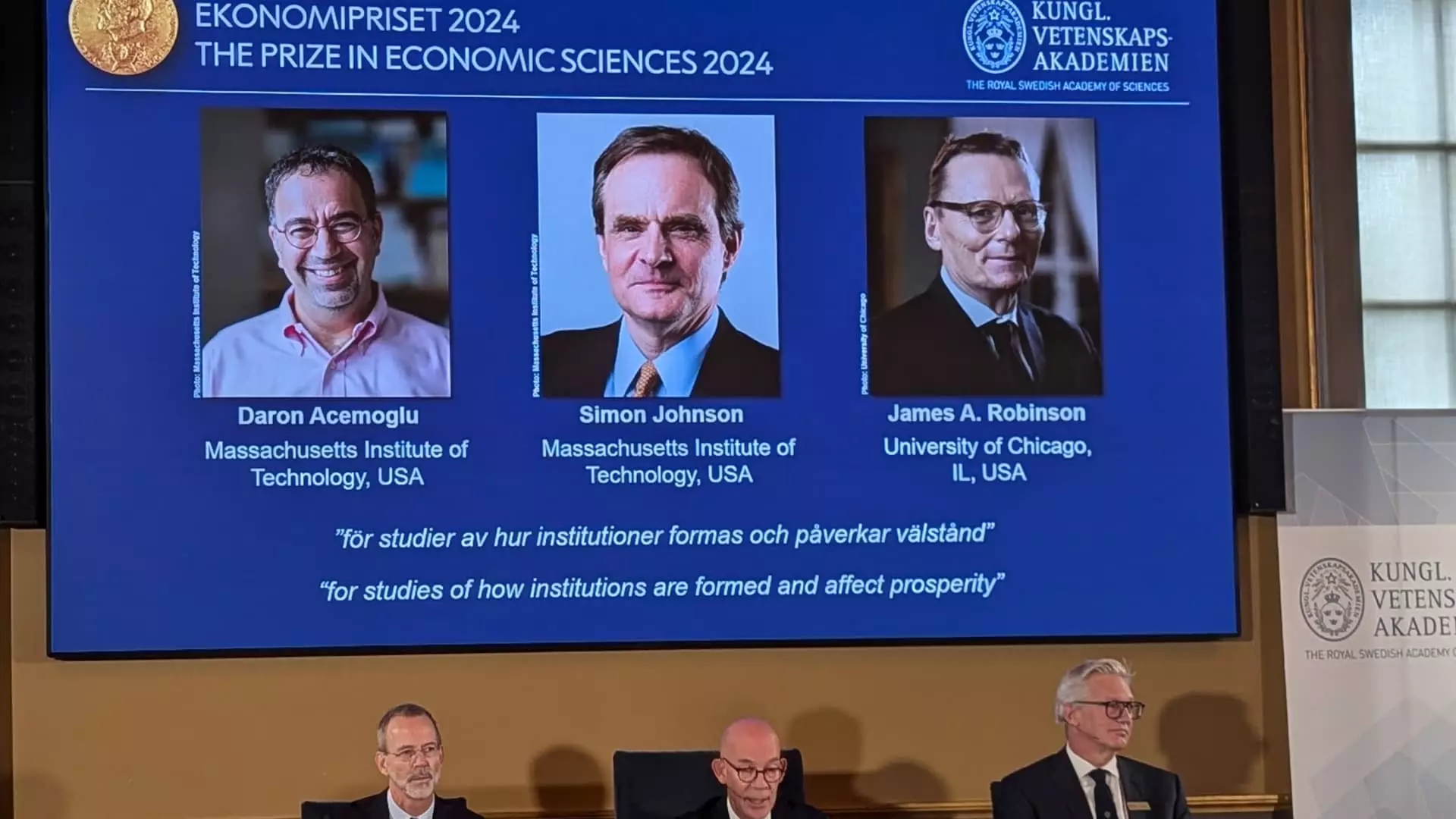On Monday, the recent awarding of the Nobel Prize in Economic Sciences to Daron Acemoglu, Simon Johnson, and James Robinson has sparked important discourse around wealth inequality on a global scale. This trio of esteemed economists has significantly advanced our understanding of the systemic roots of economic disparity that persists between nations. With modern economies divided starkly between the affluent and the impoverished, their contributions are not only timely but critical for addressing pressing issues of social justice and growth.
The Nobel committee’s recognition of Acemoglu, Johnson, and Robinson reflects their work illustrating how the absence of effective governance and fair legal institutions inhibits economic progress. Their research posits that societies burdened with poor rule of law are less likely to cultivate growth or foster equality. This connection suggests that the institutions governing a country are not merely administrative hurdles but foundational components that dictate economic trajectories.
The emphasis on societal institutions as a determinant of prosperity challenges existing methodologies that prioritize traditional economic metrics without examining the underlying socio-political structures. By foregrounding governance and policy-making processes, they provide a more nuanced framework for understanding why certain nations thrive while others flounder. Their 2012 book, “Why Nations Fail: The Origins of Power, Prosperity, and Poverty,” continues to be a significant reference point for scholars and policymakers alike, addressing both historical and contemporary elements that shape global wealth dynamics.
An integral part of the laureates’ analysis involves scrutinizing the colonial legacies that sowed the seeds of contemporary inequality. Their research indicates that the political and economic systems imposed by colonial powers have not only perpetuated imbalances but have also drastically influenced the current wealth distribution among countries. Regions that were once affluent during colonization often find themselves among the poorest today, underscoring a disturbing trend where historical exploitation begets ongoing economic disadvantage.
This historical lens is vital; it enables a comprehensive understanding of how entrenched systems of oppression and inequality have evolved over centuries. The observations made by Acemoglu, Johnson, and Robinson reiterate that without a critical examination of these legacies, attempts to rectify economic disparities will remain superficial.
A primary takeaway from the Nobel committee’s recognition is the urgent need to grapple with the chasm between wealthy and impoverished nations, a problem characterized as one of the most pressing within social sciences. While the academic community has long examined the root causes of global inequality, the work of these laureates highlights the complexities involved in addressing such entrenched disparities.
Jakob Svensson, a noted economist at Stockholm University, emphasized the critical nature of understanding these dynamics, suggesting that their pioneering methods—both empirical and theoretical—mark a significant advancement in how we study global inequality. The blending of theory with real-world data offers a robust foundation for future research and policy proposals aimed at addressing inequities.
As the world grapples with intense economic challenges, including the ramifications of globalization, resource distribution, and environmental sustainability, the findings of Acemoglu, Johnson, and Robinson serve as a clarion call for action. Awarded 11 million Swedish kronor, the laureates will share not just monetary rewards but also the responsibility to influence change.
Their research ought to inspire policymakers, economists, and citizens to advocate for reformative actions that prioritize the establishment of equitable institutions. In so doing, we can begin to pave the way toward a future characterized by reduced inequality, where the barriers to economic prosperity are dismantled, allowing all nations to rise collectively.
The Nobel Prize ceremony illuminated not just the achievements of three distinguished economists, but also the path forward for addressing the great economic divides that challenge our world today. The dialogue ignited by their work can cultivate a new understanding, spurring targeted solutions that may eventually align not only the wealth of nations but the well-being of all their citizens.


Leave a Reply